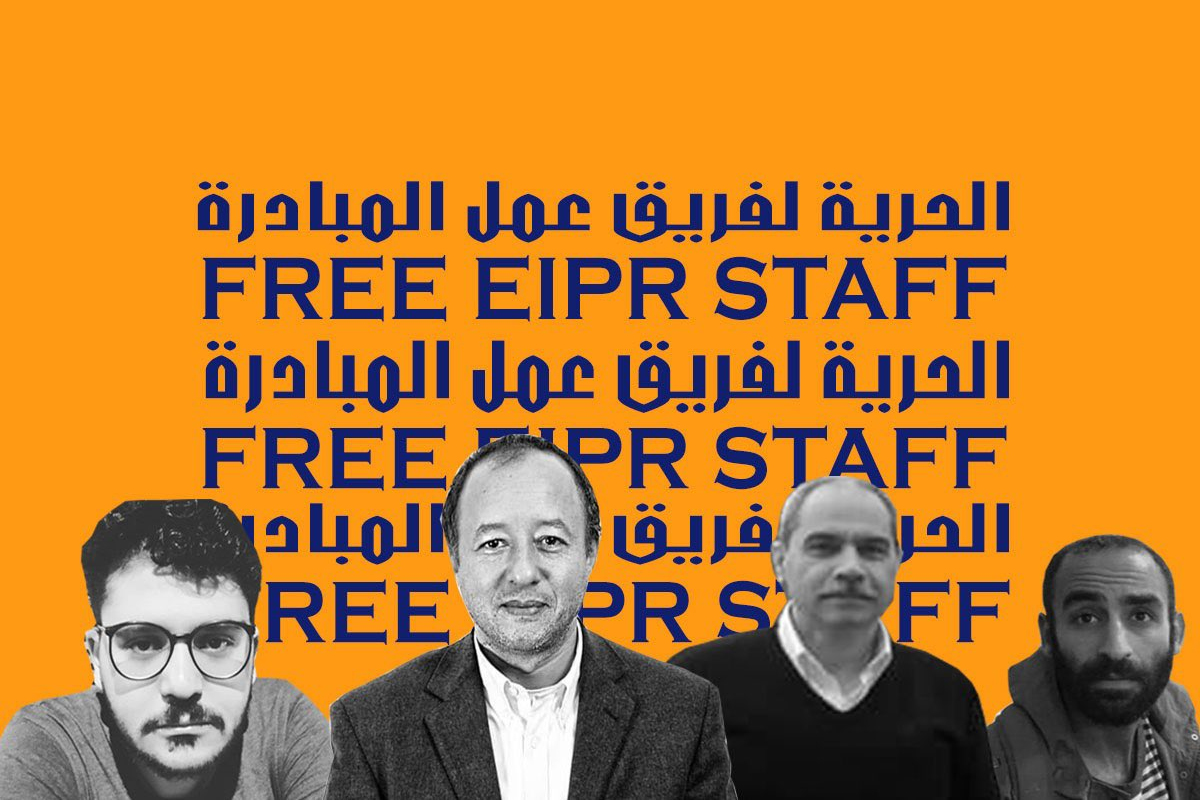The Centre for Human Rights, University of Pretoria, is alarmed by the arrest and detention of three human rights defenders by Egyptian authorities last week, marking a troubling escalation in an ongoing campaign of harassment and intimidation that has thus far failed to silence various organisations dedicated to defending fundamental human rights in the country.
It has been widely reported that Gasser Abdel Razek, Karim Ennarah and Mohammed Basheer, all of them staff members of the Egyptian Initiative for Personal Rights (EIPR), were separately arrested in various locations across Egypt in the last ten days, and have been detained pending an investigation on vague terrorism-related charges, the charge of publishing false news, and of using an internet account to spread false information. This follows the arrest earlier this year of another staff member, Patrick Zaki, who at the time was on leave to pursue post-graduate studies in Italy.
Based on reports of the interrogation discussed by a United Nations Spokesperson last week, the focus of authorities’ questions, and perhaps the impetus for this unwarranted clampdown on EIPR, is a briefing organised earlier this month for members of the diplomatic community based in Cairo. This kind of reprisal against institutions participating openly in the free exchange of ideas and information threatens the very essence of an open and democratic society.
The Centre has itself benefited in the past from thoughtful insights shared by representatives of EIPR during regional consultations held in support of thematic mandates of the United Nations and the African Union. That this effort to suffocate the voice of a prominent human rights organisation should take place during the very week that an Egyptian delegation is participating (remotely) in the 67th Ordinary Session of the African Commission of Human and Peoples’ Rights adds insult to injury.
The abuse of vaguely-worded and over-inclusive criminal statutes to suppress free discussion of questions of human rights is an affront to Egypt’s claims to have an interest in promoting human rights, expressed in such a hollow fashion for example by its hosting of the African Commission only last year in a lavish but utterly-disconnected style.
These laws, their mis-use, and the chilling effect that they impose are exactly the kind of emerging challenge that EIPR and other civil liberties organisations in Egypt and beyond are doing such valuable work to highlight.
International human rights law and the protection of human rights defenders
Article 1 of the United Nations Declaration on the Right and Responsibility of Individuals, Groups and Organs of Society to Promote and Protect Universally Recognized Human Rights and Fundamental Freedoms, guarantees everyone with the right to individually and in association with others, to promote and to strive for the protection and realisation of human rights and fundamental freedoms at the national and international levels.
Article 5 of the declaration recognises that individuals and associations must be able to communicate with non-governmental and intergovernmental organisations. Retaliating against EIPR because of a briefing organised for members of the diplomatic community based in Cairo under the pretext of false news clearly contravenes the standards established by the UN Declaration.
Over the years, the harassment and arbitrary detention of human rights defenders in Africa has been a subject of concern for the African Commission. The African Commission in Resolution 376, calls on states to take the necessary measures to provide human rights defenders with a conducive environment to be able to carry out their activities without fear of acts of violence, threat, intimidation, reprisal, discrimination, oppression and harassment from State and non-State actors. Crucially, the African Commission calls upon states to refrain from using the fight against terrorism as a pretext to restrict fundamental freedoms, including freedom of religion and conscience, expression, association, assembly and movement. Similarly, the African Commission in Resolution 196 on human rights defenders calls on states to release the human rights defenders who are arbitrarily detained and to put an end to the judicial harassment and other acts of intimidation against human rights defenders. If Egypt is to live up to its posture of openness to and engagement with the African human rights system, then these three human rights defenders must immediately be released.
Based on the above, the Centre for Human Rights therefore calls on the government of Egypt to:
- Unconditionally release Gasser Abdel Razek, Karim Ennarah, Mohammed Basheer and Patrick Zaki;
- In line with article 9 of the UN Declaration on the Rights of Human Rights Defenders provide effective remedies for the violation of the rights of the above-mentioned persons;
- In line with its general obligations under international law refrain from further reprisals on human rights defenders and create a conducive atmosphere for human rights defenders to perform their duties.
For more information, please contact:
Dr Thomas Probert
Head of Research: Freedom from Violence Unit
Centre for Human Rights
University of Pretoria
Email: thomas.probert@up.ac.za
Foluso Adegalu
Associate Manager: Litigation and Implementation Unit
Centre for Human Rights
University of Pretoria
Tel: +27 (0) 728988307
Email: foluso.adegalu@up.ac.za


